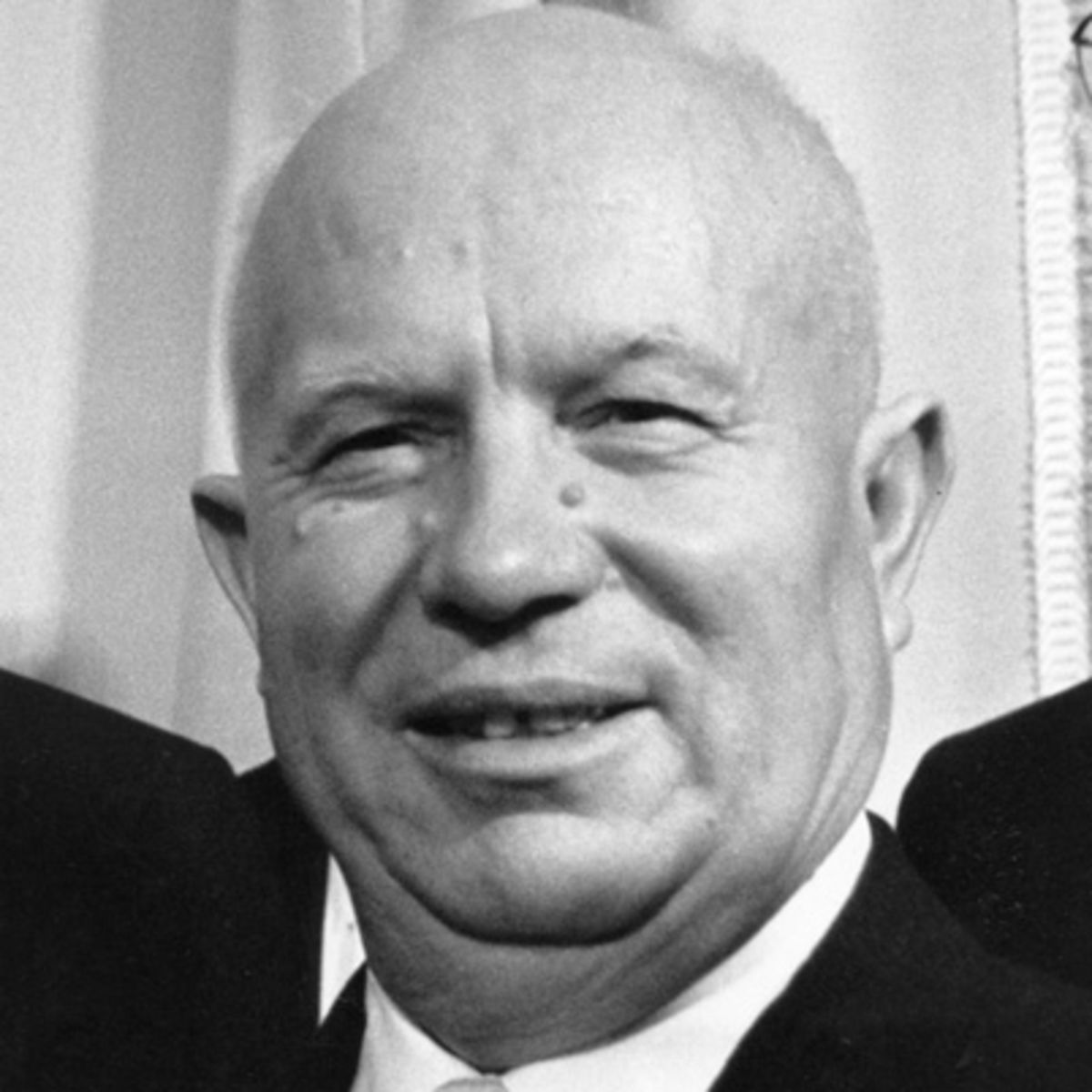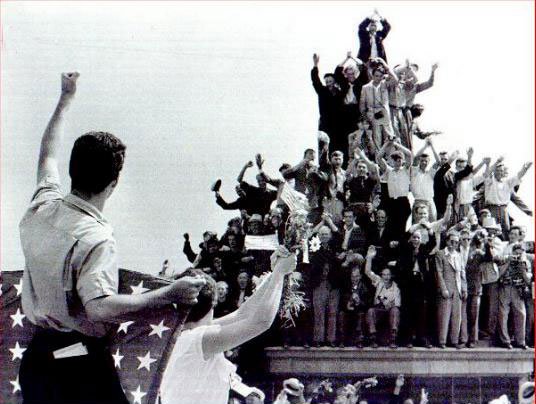After Joseph Stalin died in in March 5, 1953, Nikita Khrushchev took power and gave a speech known as “The Secret Speech” on February 24, 1956 which practically denounced Stalin and all of his work. It cited grievances throughout Stalin’s reign and denounced any of his wrongdoings. This was shocking to the people of the world and communists a like, as a new shift in the Soviet Union occurred. Communists all around Europe were scrambling, people were protesting as communist regimes were trying to retain power after Khrushchev’s bombshell speech was given. This time period was complete with a change in attitude towards Stalin and his reign and the people of Russia were beginning to move onto a new period of time.

This can be seen in a number of different places, specifically through the youth growing up in the Soviet Union. One of these examples can be seen by Mr. Piradov criticizing the students at I.V. Stalin State University. Piradov tears into the young adults of the Soviet Union, particularly at I.V. Stalin State University claiming that they are “undisciplined” and are products of “weak ideological and upbringing work”. This University is claimed by Piradov as one of exceptional academic standing, however, there has been a trend of student defiance at the University. Students are skipping lectures and are showing up late to work, per Piradov and he is incensed at their lack of care for the professors and the underlying Soviet ideology.

This trend at the University and the concern expressed by Piradov shows a shift in the the thinking of Russia’s youth. This trend of youth moving away from their traditional aspects of society mirrors the characteristics of The Thaw. During this period, as mentioned before, a shift away from Stalinism meant a shift in culture. This hatred for Stalin and shift away from Stalinism can also be seen in Boris Shragin’s literary piece “When Did You Open Your Eyes?” which talks about the celebration of Stalin’s death. Shragin explains how he was invited on March 5th, 1968 to celebrate Stalin’s death and ever since then, he claims, that he has not seen a year where it wasn’t celebrated. This too, shows a shift from the Stalin Era, where the Russian people are foregoing change after Stalin’s death and particularly in the age range of the youth of Russia.
Another example of this shift is in form of the International Youth Festival which was held in Moscow in 1957 by the city’s youth. This festival symbolized the end of traditional socialist Soviet Union life. Instead jazz music, abstractionist paintings, and other Western cultural motifs headed the celebration. This event showed a shift from the old traditional lifestyle to a more liberal, Western influenced lifestyle headed by the youth of the Soviet Union. Banners of peace ( Picasso’s Dove’s of Peace) hung over Moscow, symbolizing a tired nation ready for peace and happiness in a country that hadn’t had any of that for many years.
These three sources that have been shared, the defiance of university students, Shragin’s account of celebrating Stalin’s death, and the International Youth Festival, all showed a transformation during The Thaw. The shift that occurred from a strict, Stalinist state to a more lenient, western influenced society headed by Khrushchev was a sign of change in the Soviet Union.
Sources:
Let’s Throw A Party
Barker, Adele Marie, and Bruce Grant. The Russia Reader: History, Culture, Politics. Durham, NC: Duke UP, 2010. Print.
“International Youth Festival.” Seventeen Moments in Soviet History. N.p., 19 June 2015. Web. 07 Nov. 2015.
“Khrushchev’s Secret Speech.” Seventeen Moments in Soviet History. N.p., 19 June 2015. Web. 07 Nov. 2015.
https://www.youtube.com/watch?v=UL7ea4lO9Iw
http://i1.wp.com/soviethistory.msu.edu/wp-content/uploads/photo-gallery/gallery_flag_moscow.jpg
http://a1.files.biography.com/image/upload/c_fit,cs_srgb,dpr_1.0,h_1200,q_80,w_1200/MTIwNjA4NjMzODY5MTQxNTE2.j
It took a lot of courage for Khrushchev to give his secret speech, especially because everyone was still so pro-Stalin and he could’ve faced deadly repercussions. I think that the Soviet embrace(to an extent) of western culture and leniency in the regime was another way for the Soviets to avoid war with the US. I think that if they continued their hard line stance, then some serious conflict with the US would’ve eventually arrived.
I really enjoyed the video, which demonstrates the shift toward a bight future by glorifying the younger generations that will eventually lead the nation. The clip depicts an acceptance of diversity, a focus on unity, and a positive celebration of friendship in a city “dedicated to youth.” The post-Stalin era during the mid to late 1950’s are the beginning of a new national age as well as a new cultural perspective.
I agree with Anna — The video clip of the Youth Festival speaks volumes about the change in atmosphere after Stalin’s death. And just imagining all of the interaction and exchange that the festival facilitated highlights how transformative the aftermath of the Secret Speech was. I’d be curious to learn more about Shragin. What was it about the experience of showing the Japanese tourists the Gerasimov exhibit that proved to be so important?
Very interesting post. It seems the younger generation is always viewed as backward and unorthodox, however this young Soviet generation embodied the spirit of the thaw and ultimately help usher in a new era of Soviet progress.
Khrushchev’s denouncing of Stalin was big enough, but the youth movements that started were huge. Fortunately for the people in power, it did not turn into an Iranian Revolution-like event, but rather just a cultural gathering of ideologies to bring the Socialist nation into the forefront of the modern world.